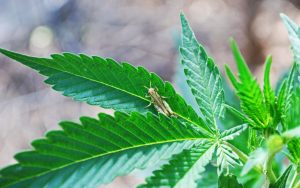
What is Organic Pest Control?
Organic pest control is a type of pest management that relies on natural solutions rather than synthetic pesticides and insecticides to prevent damage caused by pests. This means that instead of relying on toxic chemicals – which can be dangerous for people and the environment – a holistic approach is taken to manage pests.
A variety of different methods are used in organic pest control, including physical barriers such as screens and fences, biological controls such as introducing “natural enemies” into an ecosystem to help contain pests, and non-toxic repellents that discourage pests from entering your property.
Benefits of Organic Pest Control
- It is safe for people, pets, wildlife, and the environment.
- There are no long-term adverse effects.
- It can be used in places where chemicals would not be accepted (such as schools or hospitals).
- It makes use of natural resources instead of relying on synthetic chemicals.
- It helps maintain biodiversity around your property.
- It reduces the cost associated with traditional chemical treatments.
- Lower toxicity levels make it easier to handle when dealing with larger infestations.
Tips for Implementing Organic Pest Control
- Inspect your home regularly; look for signs such as droppings or gnaw marks that may indicate the presence of unwanted guests.
- Seal off any cracks or gaps in walls and windows where pests might enter. Weatherstripping should also be applied around doors and window frames.
- Remove sources of food or water that may attract insects indoors; store food in airtight containers in a cool location out of reach from pests such as cockroaches or ants.
- Remove waste frequently from areas near your building since many insects will feed on decaying matter such as grass clippings or fallen leaves.
- Plant insect-repellent plants like marigolds near doorways or windowsills; these emit smells that discourage certain insects from entering your home or business premises.
